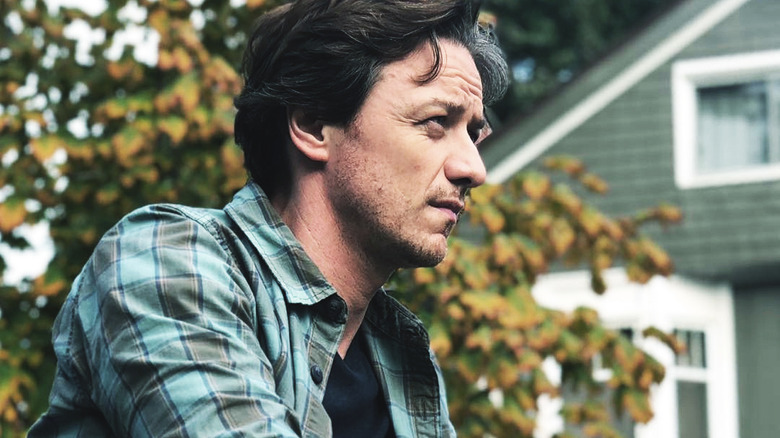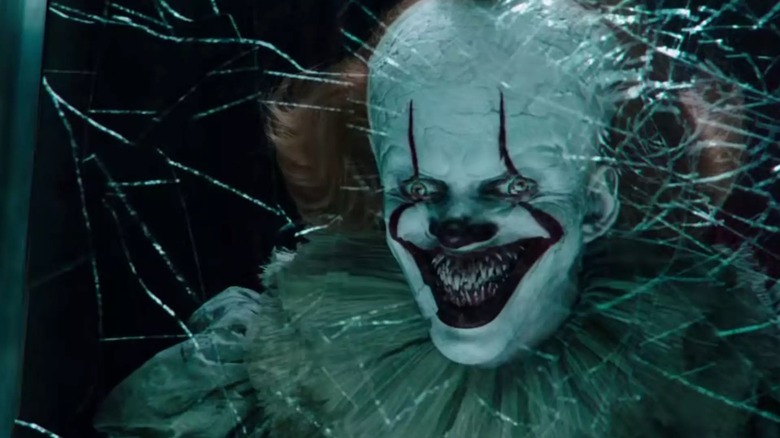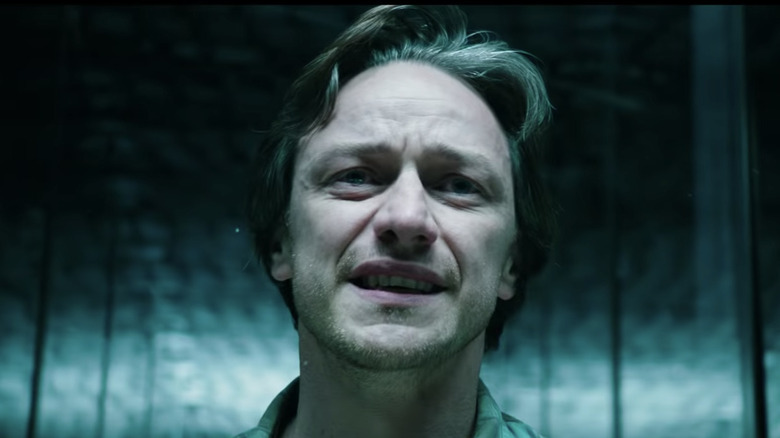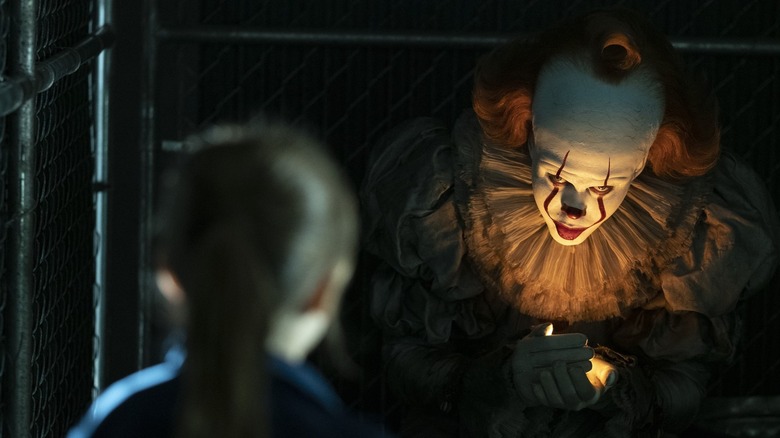The Reason It Chapter Two Gave James McAvoy Nightmares
Finally, we all have something in common with James McAvoy: a fear of celestial clowns who are maybe also spiders who are maybe also metaphors for generational trauma. When "It" and "It Chapter Two" were released in 2017 and 2019, respectively, they reinvigorated the interest in Stephen King's cosmic clown-based horror novel of the same name. If you'd already read "It," you were probably re-reading it in anticipation and if you'd never touched the book in your life, you were almost certainly stepping into the world of Derry, Maine to get down with the clown see what all the fuss was about.
Before McAvoy joined the grown-up Losers' Club crew in the film's sequel, he decided to re-read the book in preparation for his role as the adult Bill, the de-facto leader of the group with a stutter who lost his younger brother Richie to the murderous Pennywise as a kid. In an interview with Entertainment Weekly promoting the sequel, McAvoy admitted that cracking open the book and diving back into the world of "It" scared him far more as an adult than it did when he was a kid, "When I reread 'It' as an adult for the film," McAvoy said, "I actually had nightmares about Pennywise in a way that I never did as a child."
We All Have Nightmares Down Here
Pennywise's unnerving grin might haunt the minds of children everywhere, but it's easy to see how the darker aspects of King's book could make the story feel far more unnerving to an adult. "It" trades in a whole suite of traumatic events, including childhood death, sexual assault, bullying, and hate crimes. While a clown monster might feel like an impossible enemy to a kid, the adults of "It" are also dealing with the weight of these larger issues on top of admitting that growing up and moving away hasn't solved any of their problems.
In the same interview, McAvoy touches on some of the heavier themes in "It" and "It Chapter Two, saying:
"[King's] writing about a small American town, he's writing about death, he's writing about growing old, growing up. And the movie is very much about that. You could argue the first movie is as much 'Stand by Me' and 'Goonies' and all those things as it is a horror movie."
Grown-up Monsters are Harder to Fight
The "It' sequel may have played around with King's source material, but McAvoy brings a world-weary, haunted feeling to his portrayal of Bill that readers of the book will know well. McAvoy himself describes the character as "very lost and drifting through life," as he continues to deal with the fallout from his younger brother's death and his missing trauma from fighting Pennywise.
One of the most touching and relatable aspects of McAvoy's role is how he carries his grief so close to the surface. When Bill was young, his brother's death became part of a larger conspiracy that motivated him to keep fighting, giving him and his friends a common enemy to defeat. With his memories of Pennywise faded, adult Bill is left with nothing more than senseless grief. The pain of losing a loved one might not be as acute as time wears on, but McAvoy's Bill has unlocked a horrible grown-up secret — the pain never really goes away and there's nothing you can do about it. There's no monster to fight or ritual to complete. Grief simply changes you in ways both big and small for the rest of your life.
I Am Your Worst Dream Come True!
Bill's unrelenting grief is encapsulated in the hall of mirrors scene in "It Chapter Two," where Bill chases a child through a funhouse in an attempt to save him from Pennywise. The scene was born out of a conversation between McAvoy and director Andy Muschietti, says McAvoy in the Entertainment Weekly interview, adding:
"We were missing a vital story beat for Bill where he dealt with his guilt that he caused his brother's death ... I said to Andy, 'What can we do?' ... and literally in 50 minutes, he invented a whole new sequence. It was never in the script, and it isn't in the book. It's brilliant."
McAvoy's Bill is a man facing a cacophony of fears. Beyond the clown, he has to grapple with his own grown-up nightmares that revolve around senseless violence and all-consuming grief, and through it all, he's trying to correct the childish mistakes of his past. Bill is doing anything he can to put an end to the violence, even if it feels like an impossible task. What could be scarier than that?



